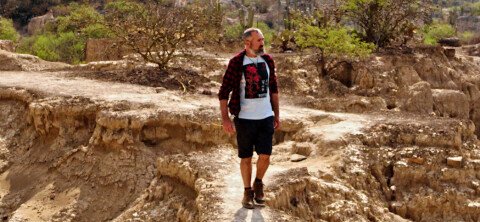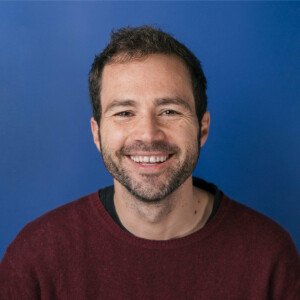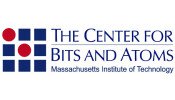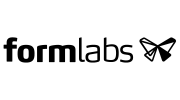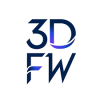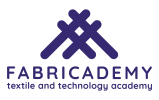What does entry to FAB24 México include?
What to Expect?
- Entrance to FAB Festival México
- - August 3 & 4 at CIEN, Puebla
- Admission to Fab Lab Conference and Symposium
- - August 5-9 at IBERO Puebla, with internationally renowned professionals
- Access to hands-on workshops and working groups
- - More than 30 workshops, with materials included
- Access to ARTeFAB art exhibition
- - July 28 to August 9 in San Roque, Puebla
- Daily meals
- - For all five days of the conference
- Admission to Mexican Fiesta
- - A celebratory closing ceremony with drinks, food, and entertainment, August 9 at San Roque, Puebla
- Admission to Beyond Fashion Runway
- - A unique eco-futuristic fashion show and cocktail party, August 8 in San Roque, Puebla
We are convinced that we can promote equity and social
justice through technological, frugal, and innovative
solutions that address relevant social problems.
FAB24 TRACKS
We've meticulously curated specialized tracks for our conference. Each track serves as a thematic avenue, guiding you through a rich landscape of focused sessions, presentations, and discussions to provide the perfect roadmap for a customized conference experience. From cutting-edge developments in technology to deep dives into research, education, and community experiences, our tracks offer a unique opportunity to delve into the heart of your interests, fostering collaboration, networking, and an enriched learning experience. Join us on this exciting journey!
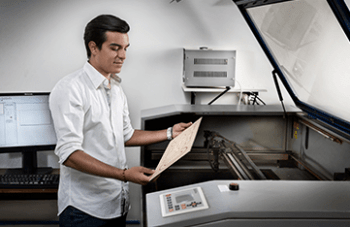
Future-Proof Skills
In the age of AI, knowledge is no longer static but dynamic, processed, and applied intelligently. It encompasses acquiring, updating, and integrating information to generate ideas and solve problems. This transformation will profoundly affect education, work, health, transportation, and various aspects of life.
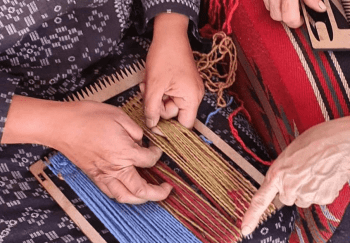
Cultural Equity
Cherished traditions must become evolving cultural practices that can adapt to social and technological advances, bridging societal gaps and reflecting ever-changing needs and values. By embracing the past, frugal innovation unlocks pathways for improved quality of life. Exploring ancestral traditions enables access to better resources and opportunities for all, narrowing the divide between haves and have-nots.
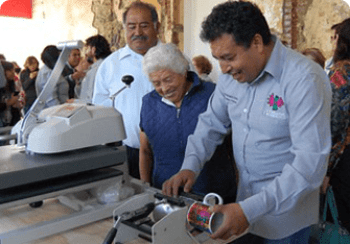
Community Innovation & Impact
To create an inclusive society, we must ensure access to a high quality of life while promoting general welfare and social justice. This involves developing innovative approaches at various levels, such as territorial, urban, and architectural, while also seeking more equitable economic systems to enhance collective wellbeing.
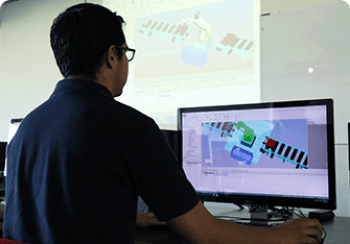
Technology 5.0
We aim to utilize technology tools and applications to enhance the quality of life for everyone. As digital technology has drastically altered our lives, it is crucial to establish fair and balanced ways of coexisting, producing, and consuming to ensure equitable outcomes in our rapidly changing world.
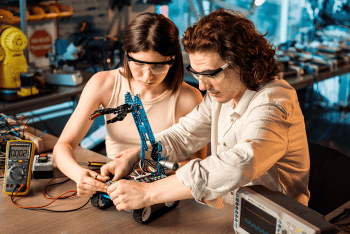
Innovative Industries
We will delve into emerging possibilities and trends with the potential to shape the future. These encompass technological, social, economic, and cultural changes. By identifying signals of change and exploring alternative scenarios, risks, and opportunities, individuals and organizations can effectively prepare for and adapt to an uncertain and ever-evolving future.
- Attendees
- +1200
- Workshops
- +100
- Collaborators
- +20
- Countries
- +55
Why Attend?
- Great Speakers
-
Enjoy a variety of interesting talks and workshops from experienced makers in the global Fab Lab ecosystem.
- New Faces
-
Meet other worldwide makers, including fellow Fab Academy students, instructors, and Fab Lab members.
- Inspiring Atmosphere
-
Engage with a vibrant community in a thriving hub of innovation to get inspiration for your next project.
Program
July & August
- Fab City Challenge Kickoff
- Travel to Challenge Sites
- Challenge Site Visits
- Challenge Working Day
- Challenge Working Day
- Challenge Working Day
- Challenge Working Day
- Return from Challenge Sites
- Fab Festival México - Day 1
- Fab Festival México - Day 2
- Fab City Challenge Showcase
- FAB24 México - Day 1
- Registration
- Opening Reception
- Keynote Speakers, Panels, and Workshops
- FAB24 México - Day 2
- Keynote Speakers, Panels, and Workshops
- FAB24 México - Day 3
- Keynote Speakers, Panels, and Workshops
- FAB24 México - Day 4
- Keynote Speakers, Panels, and Workshops
- FAB24 México - Day 5
- Keynote Speakers, Panels, and Workshops
- Closing Reception
Learn more
Open Call Season
Please refer to the provided link and shortcuts for access to the most up-to-date information on FAB24 Mexico.
Keynote Speakers
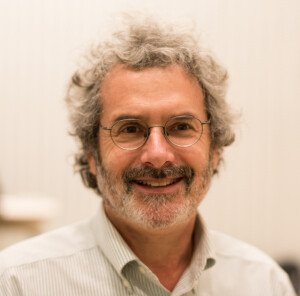
Neil Gershenfeld
Director of MIT's Center for Bits and AtomsProf. Neil Gershenfeld is the Director of MIT's Center for Bits and Atoms, where his unique laboratory is breaking down boundaries between the digital and physical worlds, from pioneering quantum computing to digital fabrication to the Internet of Things. Technology from his lab has been seen and used in settings including New York's Museum of Modern Art and rural Indian villages, the White House and the World Economic Forum, inner-city community centers and automobile safety systems, Las Vegas shows and Sami herds.
He is the author of numerous technical publications, patents, and books including Designing Reality, Fab, When Things Start To Think, The Nature of Mathematical Modeling, and The Physics of Information Technology, and has been featured in media such as The New York Times, The Economist, NPR, CNN, and PBS. He is a Fellow of the American Physical Society, has been named one of Scientific American's 50 leaders in science and technology, as one of 40 Modern-Day Leonardos by the Museum of Science and Industry, one of Popular Mechanic's 25 Makers, has been selected as a CNN/Time/Fortune Principal Voice, and by Prospect/Foreign Policy as one of the top 100 public intellectuals.
He's been called the intellectual father of the maker movement, founding a growing global network of over one thousand fab labs that provide widespread access to prototype tools for personal fabrication, directing the Fab Academy for distributed research and education in the principles and practices of digital fabrication, and chairing the Fab Foundation. Dr. Gershenfeld has a BA in Physics with High Honors from Swarthmore College, a Ph.D. in Applied Physics from Cornell University, honorary doctorates from Swarthmore College, Strathclyde University and the University of Antwerp, was a Junior Fellow of the Harvard University Society of Fellows, and a member of the research staff at Bell Labs.
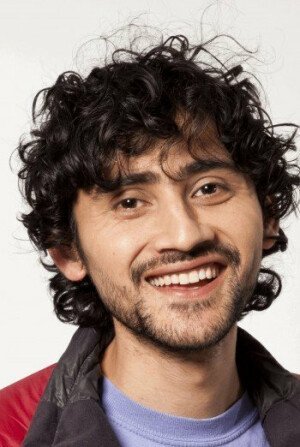
Manu Prakash
Co-Founder Foldscope | Prakash Lab StanfordWe are a curiosity driven research group working in the field of physical biology. Our approach brings together experimental and theoretical techniques from soft-condensed matter physics, fluid dynamics, theory of computation and unconventional micro and nano-fabrication to open problems in biology: from organismal to cellular and molecular scale. We design and build precision instrumentation including droplet microfluidic tools to probe and perturb biological machines and their synthetic analogues. Along the way, we invent novel technologies in global health context with clinical applications in extreme resource poor settings.
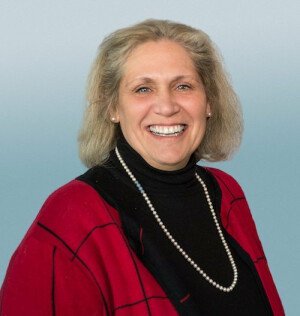
Sherry Lassiter
President & CEO, The Fab FoundationSherry Lassiter is one of the architects of the MIT global initiative for field on-site technology development, the Fab Lab program. A Fab Lab, or as users like to call it, fabulous laboratory, is a rapid prototyping platform for technical education, innovation, and personal expression.
The Fab Lab network includes over 2000 digital fabrication facilities in 126 countries. Lassiter is Director of the Fab Foundation, a non-profit organization committed to building technical capacity in a locality, improving individuals’ abilities to develop themselves and their communities and bringing access to tools and knowledge that cultivate and support innovating practices. After a two-decade career in science journalism as a producer, writer, and director for television series such as Scientific American Frontiers, Discover the World of Science, and The Science Times, she became a protagonist in science and technology, becoming part of the story, rather than just telling the story.
As Program Manager for the NSF-funded Center for Bits & Atoms at MIT, she has seen and enabled the personal fabrication movement as it has grown and evolved. Today she serves as Director of the global Fab Lab Program at MIT as well as leading The Fab Foundation, the non-profit spinoff from MIT. Lassiter is currently engaged in the deployment and growth of Fab Labs around the world, enabling grassroots technology development by, for and of the community.
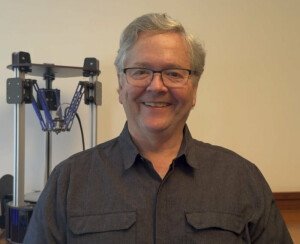
Dale Dougherty
President, Make Community and MakerEdDALE DOUGHERTY believes that all of us are makers and he is a champion of the people and projects that form the Maker Movement. He founded Make: Magazine in 2005, and first used the term “makers” to describe people who enjoyed “hands-on” work and play. He started Maker Faire in the San Francisco Bay Area in 2006. He is President of Make Community, LLC, which now produces Make Magazine and licenses Maker Faires.
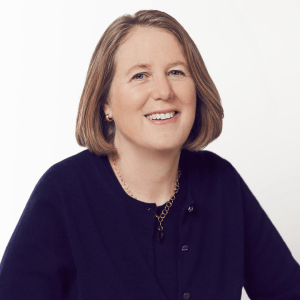
Diane Greene
Pioneering Technologist and Industry LeaderChair Emeritus MIT (2020-2023), CEO Google Cloud (2015-2019), Co-Founder & CEO VMWare (1998-2008), Member BOD Stripe, Wix, Former Board Member Alphabet, AP Moller/Maersk, SAP, Intuit, Khan Academy, Member US National Academy of Engineering, MS Computer Science UC Berkeley, MS Ocean Engineering/Naval Architecture MIT, Honorary Doctorate and BS in Mechanical Engineering University of Vermont, Honorary Doctorate Webb Institute, Women's National Dinghy Champion 1976.
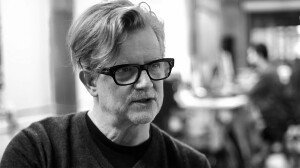
Alex McDowell RDI
Creative director, production designer, professor of practice | USC School of Cinematic ArtsAward-winning narrative designer for emergent technologies and multimedia.
:45 years designing film production and theater, animation and interactive media
:Founder, world building narrative design system.
:Co-founder and creative director at Experimental Design
:Professor of Practice in the School of Cinematic Arts at University of Southern California
:Director of USC World Building Media Lab and World Building Institute
:UK Arts and Humanities Research Council
:UK Royal Designer for Industry
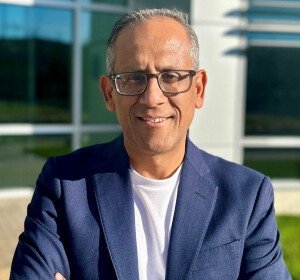
Leading the expansion of SOLIDWORKS design software into the hardware startups, Maker Spaces and Fab Labs. Evaluating emerging technologies, including IOT, 3D Printing, and AI to integrate within design software to help customers design better product, faster.
Strategy | Business Development| Product Management| M&A | Online & cloud strategies
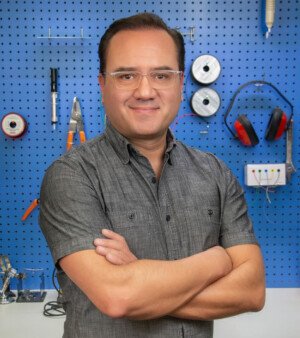
Antonio Quirarte
Founder and CEO of Hacedores, Makerspaces in SchoolsPioneer entrepreneur of internet services in Mexico. He has devised and developed several innovative technology-based projects. He is founder and CEO of Hacedores, promoting Maker education as a means to revolutionize teaching and learning processes. Hacedores specializes in the creation and operation of makerspaces and in the design and delivery of courses and workshops so that more people can join the new educational and industrial revolution. Antonio is interested in creating a more creative and less consuming society and supports initiatives with social, economic and cultural impact.
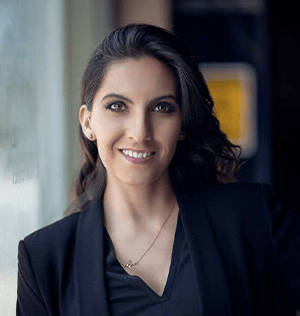
Alejandra Díaz de León
Design Technology Director, Gensler MexicoDesign Technology Director at Gensler Mexico, known for her multidisciplinary approach across various projects—from her contributions to the design and real estate industry at Gensler to her research in compliant mechanisms.
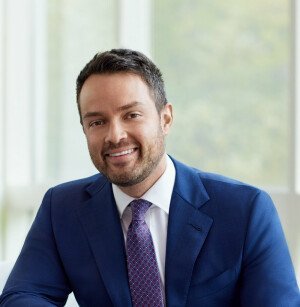
Dorion Positano
Global Head of Disruptive Innovation Partnerships | P&GOver the past decade Dorion has held roles in business strategy, brand-building innovation (including the launch of P&G Studios), strategic corporate partnerships and various profit/loss ownership roles at P&G. He also hosts the company-wide global employee podcast, which has become one of P&G’s most widely used training and development tools. Dorion holds a Bachelor of Commerce degree from Queen's University and is from Canada.
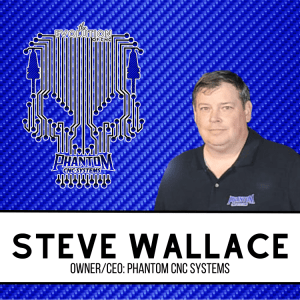
Steve Wallace
CEO, Phantom CNC SystemsPhantom CNC Systems is a company that was created to help people obtain CNC technology at a fair price. We are a small, but determined company, in helping bring automation technology and fair market pricing to the masses in hopes of building educational value to the end consumer. Based out of rural North Carolina, USA, our hopes would be to change the world of CNC one customer at a time.
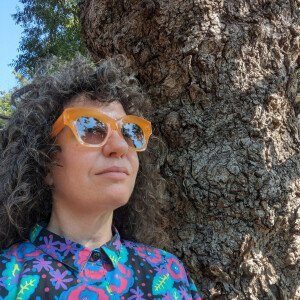
Liz Barry
Eco-social TechnicianLiz is a leader in the open movement and speaks internationally on human - environment - technology relationships. Originally trained as a landscape architect, her initiatives — often characterized as collective intelligence by observers — have enabled community science, group self-determination, democratic upgrades and collective action worldwide. She defends the complexity within individuals and groups by designing, in her words, "methods for the madness."
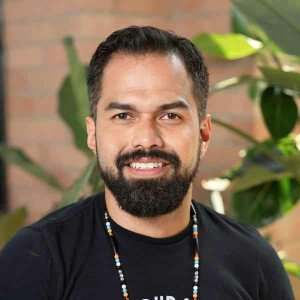
Alejandro Mayoral
Founder and CEO of Indigenous Friends AssociationActivist and scholar (digital decoloniality & decolonial computing) | Critical race coder/developer | Currently working with Indigenous organizations in Canada and Mexico to create and bring digital applications to different communities.
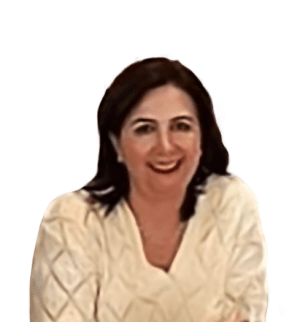
Overseeing strategic business initiatives from ideation to implementation, reporting to the CEO. Creative & change-ready mindset executive. Highly experienced in strategic planning, program evaluation, and budget management.
💙 The further along in my career I travel, the more motivated and driven I become by a powerful mission, strong culture and focus on development.
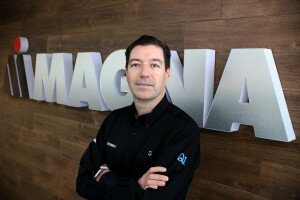
Gabriel Escondrillas
Magna InternationalGraduated with a degree in Industrial Engineering, a master’s degree in Quality and a master's degree in HR Management and Strategies. His professional career began as an Engineer in several areas. He currently works as Human Resources Director at Magna, Cosma Group, with more than 10,000 employees. He believes that a challenge that sums up various projects is obtaining a good work environment for 18 consecutive years; achieving employee satisfaction levels of up to 95%.
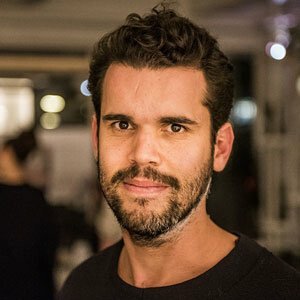
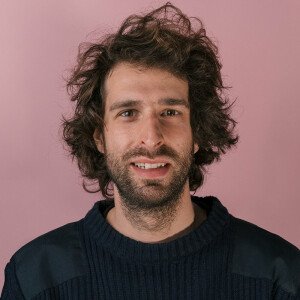
Guillem Camprodon
Executive Director | Fab Lab Barcelona, IAACGuillem Camprodon works at the intersection of emerging technologies and grassroots communities. He is the Executive Director of Fab Lab Barcelona at the IAAC, a leading hub within a global network of over 2500 Fab Labs and home of the Distributed Design Platform. An educator at heart, he co-directs the Master on Design for Emergent Futures (MDEF). Previously, he led Smart Citizen, a paradigm-shifting platform that democratizes access to environmental data tools.
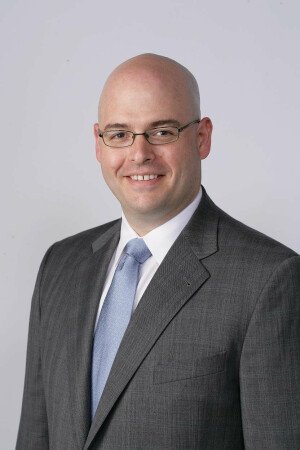
Dan Stone
CEO, 909 Street AssociatesCurrently, Mr. Stone splits his time between 909 Street LLC, a transformation special situation consulting firm he founded, managing his family office, and advising a number of PE firms in the IT services space.
Over the past 20 years Mr. Stone has held a number of leadership roles within the technology space, including CEO of Curvature which he sold to Park Place Technologies, CEO of Compucom which he sold to Office Depot, Chairman of Powermat Technologies, President of Lenovo Latin America, and Global Chief Strategy Officer of Lenovo where he oversaw technology investments, strategic partnerships/alliances, and post-merger management activities across the globe.
Previously, Mr. Stone worked for McKinsey & Company and Monitor Company, serving high tech and telecom clients in North America, Europe and the Middle East. He has advised many VCs and start-ups and served on multiple company boards.
Mr. Stone holds an MBA from Harvard Business School and a BA in Economics and Business Administration from Hebrew University. He served as a Team Commander in the Israeli Defense Forces.
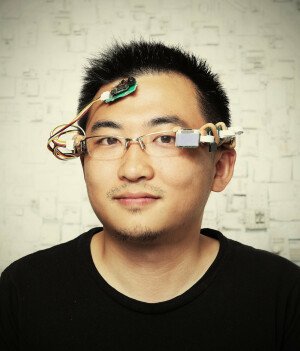
Eric Pan
Founder & CEO Seeed StudioFounder and CEO of Seeed Studio and Chaihuo makerspace, Producer of Maker Faire Shenzhen. He endeavors to integrate the latest IOT/AI/Blockchain technologies and supply chain resources to create an open platform for global developers.
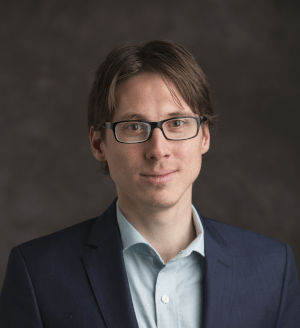
Jean-michel Molenaar
Deployment at the Fab Foundation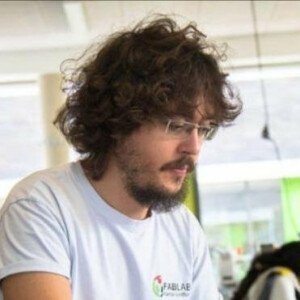
Daniele Ingrassia
Founder and CEO InMachinesHaving been teaching Fab Academy for 7 years in a row, and being a Fab Lab guru since 2017, Daniele is the founder of InMachines, a company focused on open source digital fabrication machines based in Germany. With a background in computer science, he nowadays develops open hardware leaving behind a long series of Fab Lab projects. Daniele managed to develop several open source electronics and machinery, such as the satshakit boards, a dual source laser cutter (Laserduo) and a large format 3D printer (BigFDM). Currently developing a full Fab Lab inventory of replicable machines called Open Lab Starter Kit, with his projects being replicated in many other countries, Daniele held several fabrication and machine building workshops around the world.
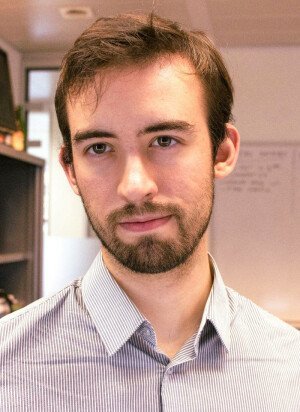
Quentin Bolsée
CBAQuentin Bolsée is a Postdoctoral Researcher at the MIT Center for Bits and Atoms, specializing in modular machine building and computer vision. His work focuses on controlling digital fabrication machines (3D printers, CNC milling machines, etc.) using a network of modules rather than a single, monolithic motherboard. As a teaching assistant for the MIT class “How to Make Almost Anything”, he worked on minimalist programmer boards for various microcontroller families (ATtiny, SAM), simplified workflows for rapid prototyping of electronics boards using milling processes, and a family of machine components that helps students design and build custom machines in under a week
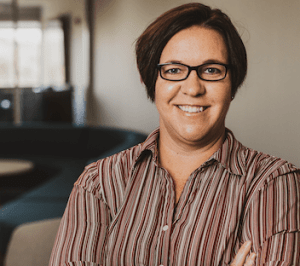
Liz Whitewolf
Dr. Liz Whitewolf earned her Ed.D. in STEM Education from the University of Pittsburgh where she researched digital makerspace integration in K-12 education, her dissertation is titled "Activating Digital Makerspaces for Authentic Student Learning: Supporting K-12 Teachers in Digital Technology Integration." She is passionate about integrating digital fabrication technologies equitably in schools for students, teachers, and other stakeholders in education and founded eduFAB in 2021 to focus on this work internationally. Previously the K-12 Education Director for Fab Foundation, Liz now consults with districts for strategic and sustainable digital makerspace development and integration through eduFAB. A 2016 graduate of FAB Academy, Liz opened an educational Fab Lab in Pittsburgh, eventually expanding the program to include two mobile fab lab units in addition to the museum-based makerspace. Liz served as Senior Director of STEM Education at Carnegie Science Center and previously was a classroom teacher and out of school time educator in robotics, computer programming, and engineering. In addition to her eduFAB work, Liz leads the International Fab Learning Academy project.
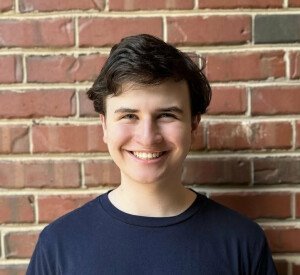
I'm Adam Stone, and I go to Charlotte Latin School (Class of '25) in Charlotte, North Carolina. Before moving to Charlotte, I lived in São Paulo, Brazil and Cary, North Carolina.
My long-range goal is to become a thought-leader in creating innovative technologies that will empower individuals, especially those who are neurodivergent, to maximize their potential. As an advocate who believes that efficient access to knowledge is a critical component to fostering inclusion and productivity, I dream of using science to create a new industry standard in assistive technologies.
I'm passionate about musical theater. Ever since I was very little, I have loved being on stage. Some of my favorite roles have included playing Billy Cane in Bright Star and Lord Farquaad in Shrek the Musical. I was a Best Actor Finalist at the Blumey Awards for the past two years for these performances, which was a great honor.
The art of communicating is something I also highly value. When I was in preschool, my family moved to São Paulo, Brazil and enrolled me in a local school. My experience living abroad sparked a love for learning languages (I am proficient in three) and also a desire to use language to make connections. When I was in sixth grade, I joined the Speech & Debate Team at Charlotte Latin School and have been competing in national tournaments every year since in numerous speech events, as well as Lincoln-Douglas debate. For each speech event, a student is required to deliver a ten-minute, memorized speech around a theme of choice. I’ve taken the opportunity to touch on topics that are very important to me, such as the negative impacts of ableism, as well as more entertaining topics like the American obsession with straight teeth and its greater implications. In addition to being the champion speaker at tournaments held by Stanford, Princeton and Duke Universities, I’ve had the honor of qualifying to compete at the Tournament of Champions at the high school level every year since seventh grade.
For most of my life I've trained in martial arts. I'm a third-degree black belt in Taekwondo.
I'm also a Youth Ambassador for the Tourette Association of America. In this role, I advocate for funding and research for Tourette Syndrome and tic disorders every year on Capital Hill, as well as educate students and teachers about the condition to promote inclusion and acceptance. To read more about this, see my advocacy work and Fab Academy Final Project.

Ekaterina Kormilitsyna
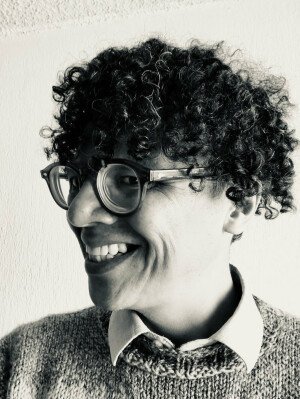
Maximino Matus Ruiz
PhD | El COLEFDoctor en Sociología del desarrollo rural por la Universidad de Wageningen, Holanda. Maestro en Semiótica por la Universidad de Tartu, Estonia. Maestro y Licenciado en Antropología Social por el Centro de Estudios Superiores en Antropología Social (CIESAS-Occidente) y la Escuela Nacional de Antropología e Historia (ENAH), respectivamente; ambas instituciones mexicanas. De noviembre 2011 a octubre de 2014 se desempeñó como coordinador de la Oficina de Tecno-Antropología de Infotec, centro público CONACYT, México. A partir de diciembre de 2014 es catedrático CONACYT y funge como investigador en el Colegio de la Frontera Norte (El Colef).

Licenciada en Comercio Internacional por la IBERO, con formación en design thinking, economía social y certificación en Emprendimiento de Alto Impacto por University of Texas at San Antonio, co fundadora del capítulo joven de la Asociación de Empresarios Mexicanos y miembro activo. Participación en programas de emprendimiento entre los que destacan Grupo Asesor Empresarial, Yo Compro Poblano, Emprendidos, Rally Latinoamericano de Innovación,Posible Puebla, Conectando Emprendedores Oaxaca.
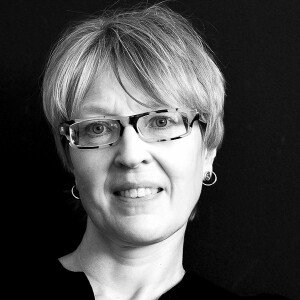
I am a researcher, teacher and writer in Design-for-Sustainability. I focus especially on everyday design, maker culture and urban activism in sustainability transformation.
I am Professor in Design for Sustainability at Umeå Institute of Design in Sweden. I previously worked in Aalto University, Finland, in the INUSE Users and Innovation Research group and was PI of the postdoctoral research project Making the Next (Sustainable) Industrial Revolution from the Grassroots, funded by the Nessling Foundation. You can read my doctoral dissertation Making Sustainability, which was awarded with Distinction, from Aalto ARTS books, here.
My areas of expertise as a Science & Technology Studies scholar include qualitative research (especially Symbolic Interactionism, the social worlds framework, ethnographic and participant / non-participant methods) in documenting and analysing technology subcultures.
As a design researcher and teacher, I have published on and taught sustainable product-service system design, design for social innovation, design for a circular economy, design for distributed economies, values-in-design in the design of products and technologies, and collaborative- and co-design.
I particularly examine values-in-design in material peer production, where DIY maker activists and active citizens are enabled to design and produce their own products, tools and technologies as an alternative to mass production and consumption.
Maker subcultures also design their own collaboration processes and group governance, as alternatives to hierarchical management, often in shared community workshops like fab labs, makerspaces, hacklabs and hackerspaces.
And active people in cities mobilize from the grassroots to address neglected environmental issues, reclaim public space and protect cultural heritage, and collaboratively, materially experiment with new ways to Do-It-With-Others in the city.
How can the grassroots transform the mainstream in sustainability transformation?
Makers lobby to contribute to regional and global socio-technical imaginaries on technology, the digitalizing society and democratizing industrial production. As lead users, makers’ techno-utopian visions and their everyday practices in fab labs are at the forefront of industrial transition.
The most environmentally oriented activists draw others into material engagement with “sustainability” to make visible and visceral material flows and the impacts of consumption.
These technology subcultures are therefore living today what others will experience in future, and urban decision-makers, manufacturing industries, scientists and policy-makers are starting to pay attention.
Design research methods such as critical making and Participatory Design workshops can be strategically designed to create dialogue about these alternatives and to collaborate with grassroots communities in knowledge-making. Together we – academia, industry and civil society – can foster deeper understanding of sustainability collectively, and we can develop products and services that better meet people’s needs, strengthen community resilience and foster participation in society.
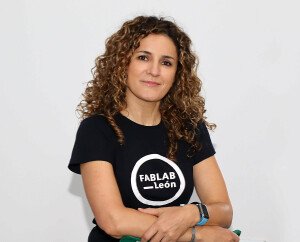
https://www.linkedin.com/in/nuria-robles
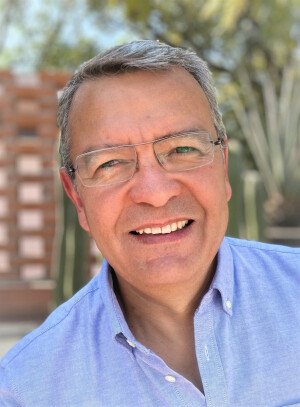
Eugenio Barrios
Director Water Program | Fundación Gonzalo Río Arrontehttps://www.linkedin.com/in/eugenio-barrios-1789b01/
Ambassadors
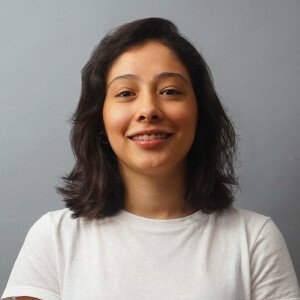
Camila Luna
Co-Founder | MoonMakersMoonMakers is an organization dedicated to STEAM education—science, technology, engineering, art, and mathematics.
Our mission is to facilitate educational experiences for students of all ages, using methodologies such as Project-Based Learning and Design Thinking, to teach a diverse array of subjects including Artificial Intelligence, programming, and digital fabrication, among others. Our resources are specifically designed for educators, providing the necessary tools to integrate advanced technology and innovative approaches into the classroom.

Diego Luna
Co-Founder | MoonMakersMoonMakers is an organization dedicated to STEAM education—science, technology, engineering, art, and mathematics.
Our mission is to facilitate educational experiences for students of all ages, using methodologies such as Project-Based Learning and Design Thinking, to teach a diverse array of subjects including Artificial Intelligence, programming, and digital fabrication, among others. Our resources are specifically designed for educators, providing the necessary tools to integrate advanced technology and innovative approaches into the classroom.
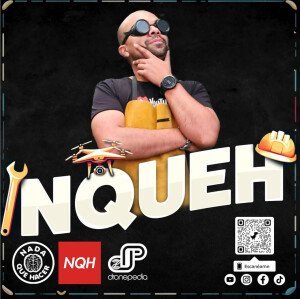
Nada Que Hacer
Nada Que Hacer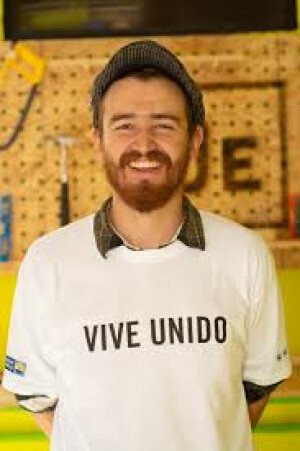
Gus Merckel
Mechanical Engineer and MakerI'm a mechanical engineer and maker. I started in the maker world working at Ding Fabrik in Cologne, Germany, with the project Regeneractive.wordpress.com.
Back in Mexico I cofounded Hacedores Makerspace and helped to design and build the first Makerspace at a School in Latin America.
I also collaborated as the Director of Programs at Jacaranda Education, where we worked to bring Maker Education to all the teachers and students in Mexico and abroad.
Today I'm the STEAM Coordinator in Middle School at the American School Foundation and I also build machines and teach about plastic recycling with my project Plástico Chido.
